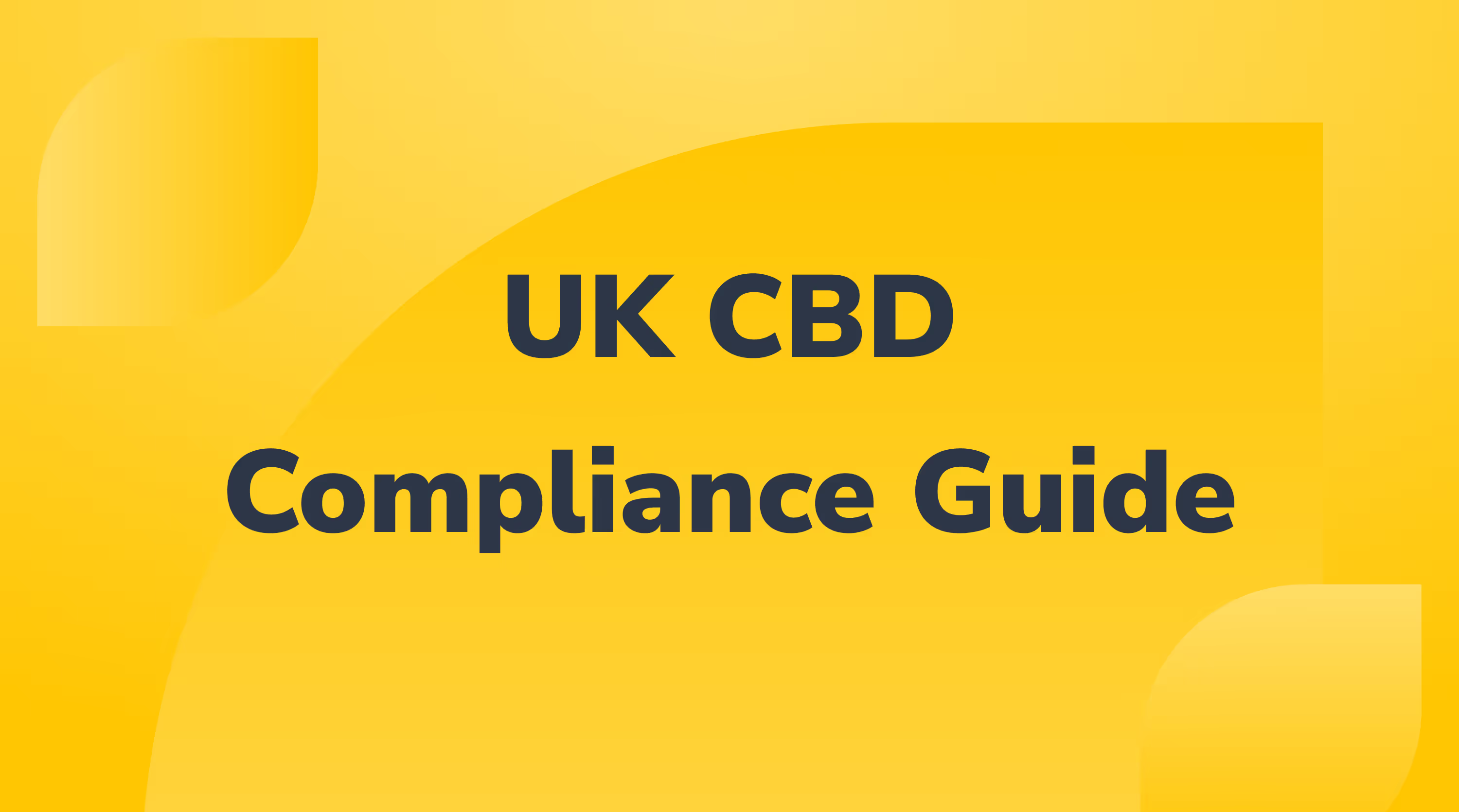Selling CBD Products on Amazon UK: The Ultimate Compliance Guide

The UK CBD market is one of the most developed in Europe, with a massive and growing base of consumers seeking wellness products. Naturally, sellers see Amazon.co.uk as a prime channel to reach this audience. However, the path to selling CBD on Amazon is fraught with complex regulations, ambiguous platform policies, and significant business risk.
This is not a category for the unprepared. This guide will provide a clear-eyed look at the two main hurdles you must overcome: the UK's strict Novel Food laws and Amazon's own internal policies, which are often even stricter.
1. The Legal Foundation: CBD as a "Novel Food"
In the UK, ingestible CBD products (like oils, capsules, and edibles) are regulated by the Food Standards Agency (FSA) and are legally classified as "Novel Foods."
- What is a Novel Food? It's a food product that does not have a history of significant consumption in the UK or EU before May 1997. As such, it must undergo a rigorous safety assessment and be authorized before it can be legally sold.
- The Mandatory FSA Application: To be legally sold in Great Britain, any ingestible CBD product must be linked to a validated Novel Food application that was submitted to the FSA before the deadline of 31 March 2021. The FSA maintains a public list of products that are permitted to remain on the market pending full authorization. If your product or CBD supplier is not on this list, it cannot be legally sold in the UK.
- Zero-Tolerance for THC: THC is a controlled substance in the UK. Your CBD products must contain no more than 1mg of THC per container, which effectively means it should be non-detectable in any third-party lab test.
2. Amazon's Stance: Navigating the Grey Area
Even if your product is 100% legal under UK law, you must still navigate Amazon's own restrictive policies. This is often the greater challenge.
- The "Hemp" vs. "CBD" Dilemma: Amazon's official Restricted Products policy often prohibits listings that explicitly mention "CBD" or "Cannabidiol." To navigate this, many successful brands list their products as "Hemp Oil Extract," focusing on the source plant rather than the active ingredient.
- High Risk of Suspension: This is a critical point to understand. Amazon's automated bots and human reviewers can, and frequently do, suspend listings and even accounts for perceived violations of their drugs and paraphernalia policy. Using words like "CBD" or making any kind of health claim is the fastest way to get your listing removed. Selling in this category means accepting a higher level of risk than in almost any other.
- No Medical or Health Claims Allowed: CBD is not on the UK's register of authorized health claims. You absolutely cannot make any claim, direct or implied, that your product helps with pain, anxiety, sleep, inflammation, or any other medical condition. Your entire listing must be scrubbed of any such language.
3. Your Compliance & Risk-Mitigation Checklist
To have any chance of success, you must follow a meticulous compliance process.
- Verify Your Product on the FSA Public List: Before you invest a single pound, ensure the CBD raw material from your supplier is linked to a validated application on the FSA's public list.
- Secure Third-Party Lab Reports (CoAs): You must have a Certificate of Analysis (CoA) from an accredited, independent lab for every batch of your product. This CoA must verify the CBD content and, crucially, show that the THC content is below the legal limit ("non-detectable").
- Perfect Your Labelling: Your label must be fully compliant with UK food labelling laws (including a UK FBO address) and must not contain the word "CBD" or any health claims.
- Craft Your Amazon Listing with Extreme Care:
- Title/Description: Use terms like "Hemp Extract" or "Hemp Oil." Focus on the total milligrams of extract, the purity of your process (e.g., "CO2 Extracted"), and the carrier oil (e.g., "MCT Oil").
- A+ Content: Use this space to talk about your brand's commitment to quality, third-party testing, and the source of your hemp, not about the effects of the product.
- Be Ready for an Amazon Audit: Have all your documentation—proof of Novel Food application status, batch-specific CoAs, and business details—collated and ready to send to Amazon at a moment's notice.
Navigating the dual requirements of FSA law and Amazon policy is a minefield. Sitruna's experts can provide a full compliance review of your documentation, labels, and listings to help mitigate the inherent risks of selling in this category.
Useful Resources
- UK Food Standards Agency (FSA) - CBD Guidance
- The FSA's Public List of Permitted CBD Products
- Amazon's Restricted Products Policy: Drugs & Drug Paraphernalia
A Market for a Meticulous Few
Selling CBD on Amazon UK is one of the most challenging ventures in e-commerce today. It requires flawless legal compliance, a deep understanding of Amazon's ambiguous policies, and a high tolerance for risk. However, for the meticulous few who can successfully navigate this landscape, the reward is access to a massive and underserved customer base on the UK's largest online platform.
Don't risk your business in the CBD grey market. Schedule a free discovery call with the Sitruna team at www.sitruna.com/meet to discuss a compliance and risk-mitigation strategy for this high-potential category.



